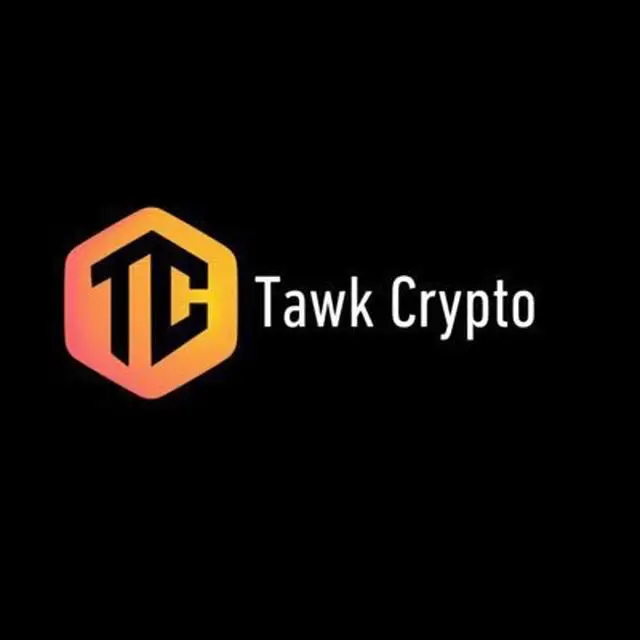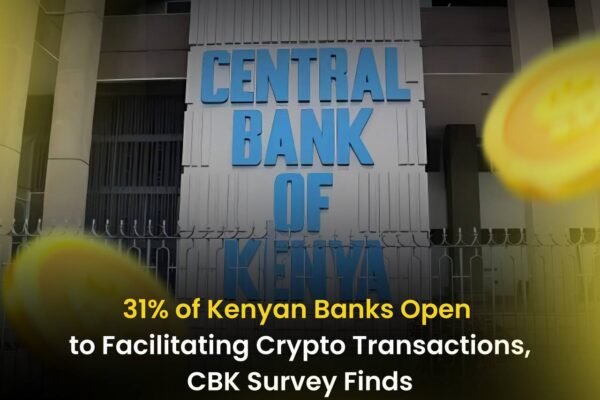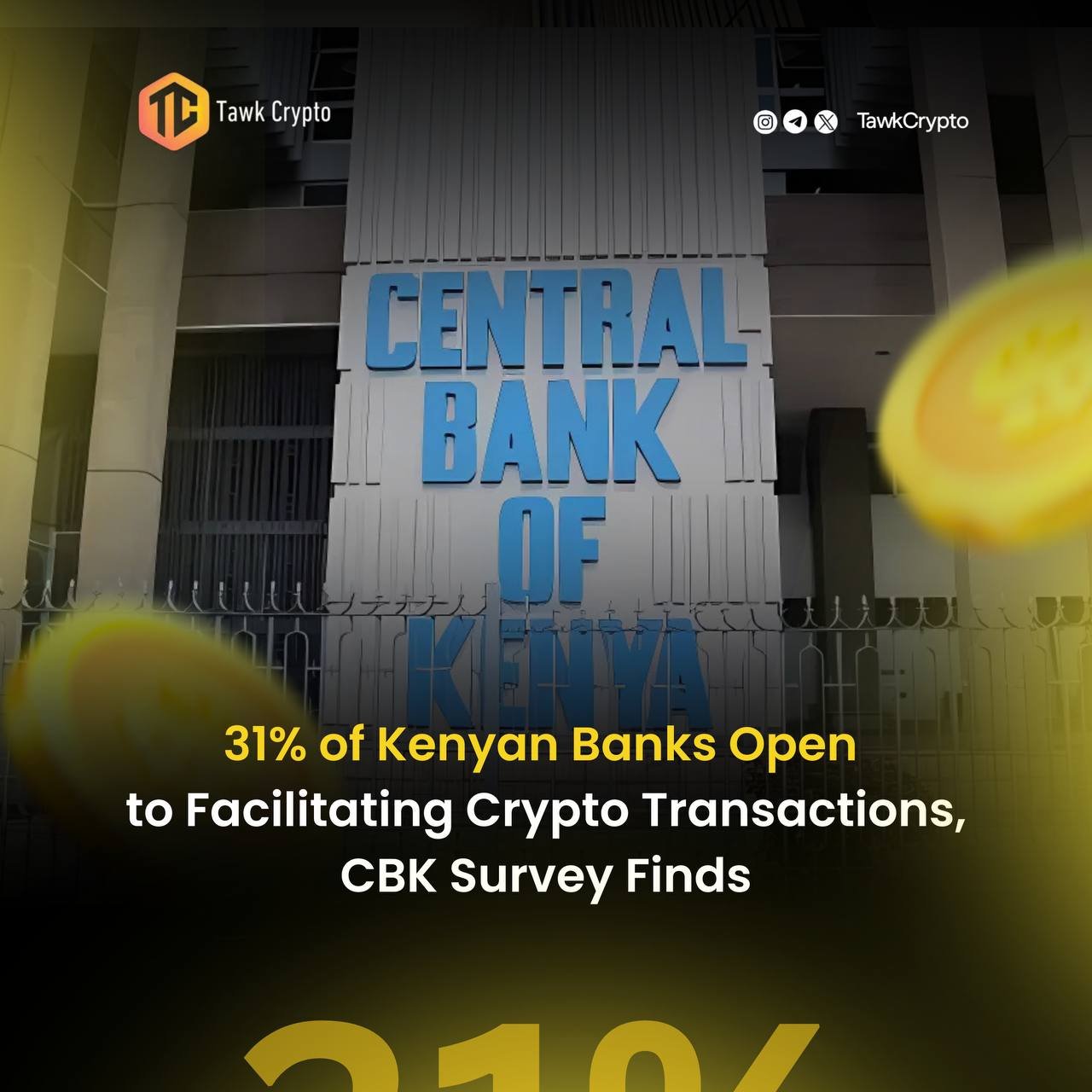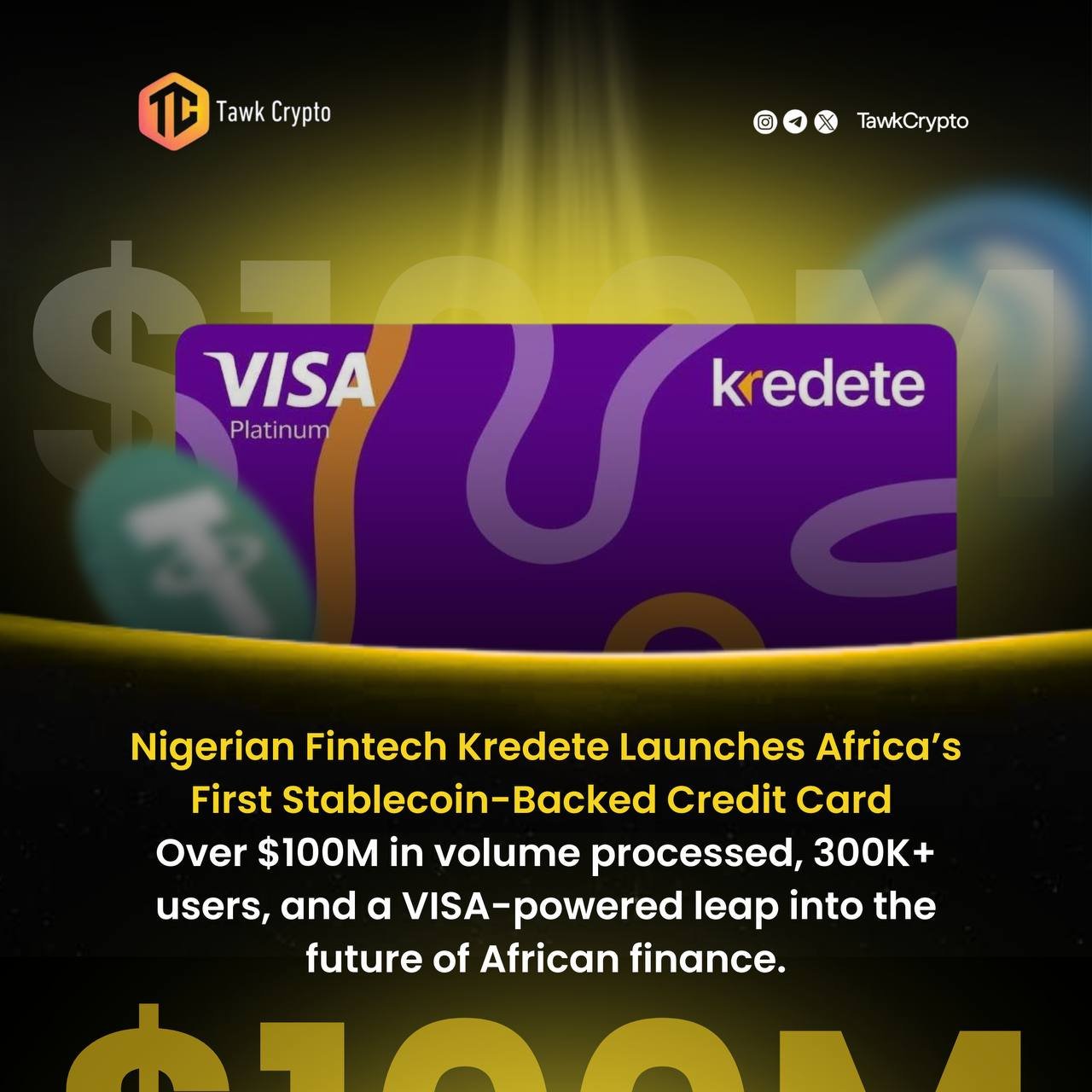
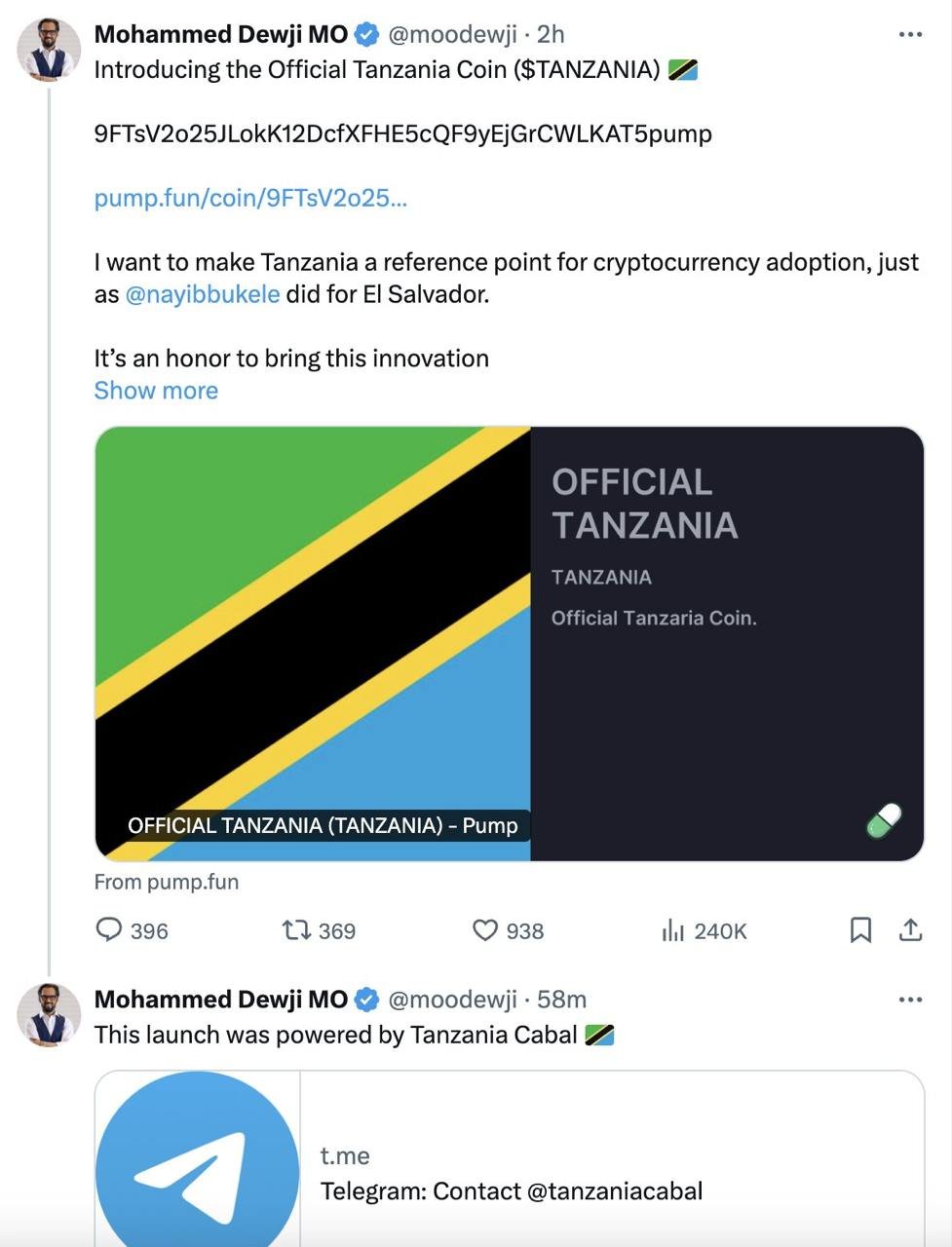
African Magnate Mohammed Dewji Falls Victim to Latest Crypto Hack: Unmasking the $TANZANIA Scam
In a stark reminder that no one is immune in the fast-evolving crypto world, Tanzanian billionaire Mohammed Dewji, a respected figure in Africa’s business community and head of the MeTL Group, has recently become the target of a sophisticated crypto scam. Hackers infiltrated Dewji’s official X (formerly Twitter) account, misleading his 2.2 million followers by falsely promoting a token called $TANZANIA. The scam, which has already left investors with losses exceeding $1.4 million, is now under intense scrutiny by industry experts and regulators alike.
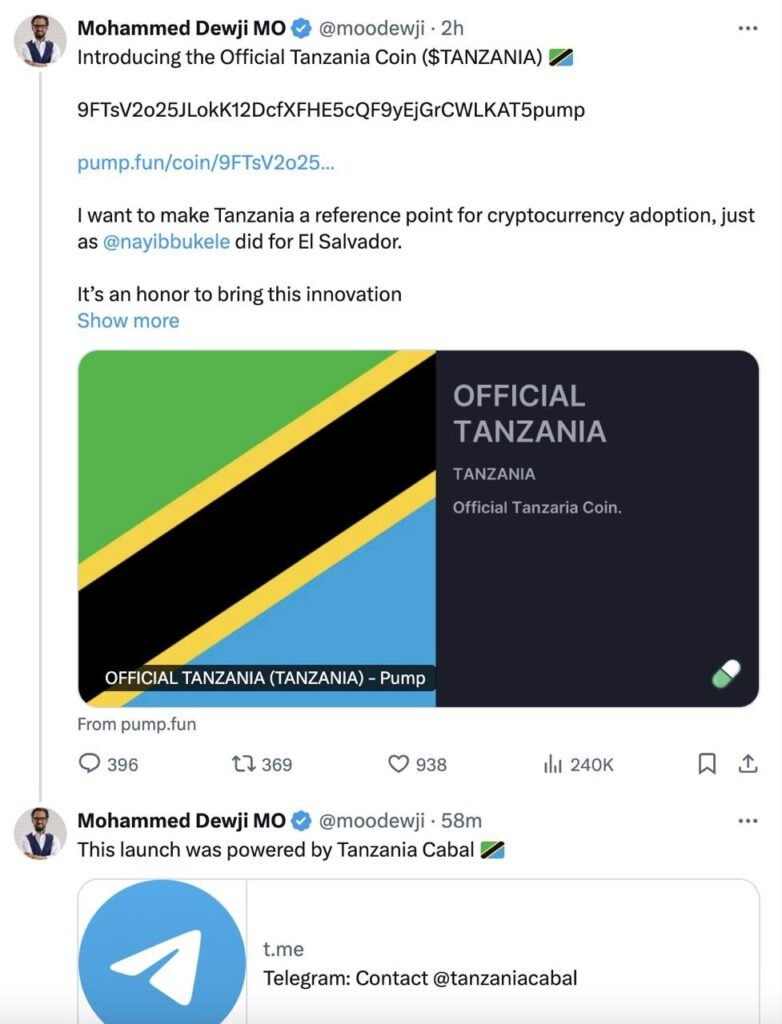
A Deepfake Deception
The scam first unfolded on Wednesday morning when Dewji’s X account began posting unusual promotional messages endorsing the newly minted token, $TANZANIA. A brief, 10-second video was shared that appeared to show Dewji in his home office, casually holding a piece of paper with the word “TANZANIA” scribbled on it. At first glance, the video lent an air of legitimacy to the token, especially given Dewji’s status as a prominent African magnate known for his influential presence both on the continent and globally.
However, as the day progressed, it became clear that something was amiss. Later that same day, Dewji used his official WhatsApp channel to clarify that his X account had been hacked and that he had no affiliation with the $TANZANIA token. The video was quickly identified as a deepfake—a manufactured clip designed to mimic Dewji’s image and voice, deceiving unsuspecting investors into believing that the billionaire was behind a new crypto venture.
The Rug Pull Unfolds
Despite the swift clarification, the damage was done. By the time Dewji publicly addressed the hack, investors had already funneled a staggering amount into $TANZANIA. According to blockchain analytics from Lookonchain, the scam deployer strategically distributed 90 SOL across 20 different wallets before accumulating 793 million $TANZANIA tokens—roughly 80% of the token’s total supply. Once the price began to surge due to the influx of unsuspecting investors, the deployer executed a classic rug pull, selling off all tokens and absconding with over 7,300 SOL, amounting to approximately $1.5 million at current rates.

A Growing Concern for Celebrity Accounts
Mohammed Dewji’s experience is not an isolated incident. In recent years, several high-profile figures, including Barack Obama and Michael Jordan, have seen their accounts compromised by hackers. These breaches have often resulted in the spread of misleading promotions or false endorsements of new crypto projects, leaving millions of followers at risk. “If you’re a celebrity with an official social media account, beware: hackers can strike at any time,” warned industry insiders. The incident underscores the broader challenge facing platforms like X, where deepfakes and account takeovers remain a persistent threat.
Who Bears the Blame?
The question of responsibility now looms large. While the immediate blame falls on the hackers, the incident has also ignited discussions about the role of social media platforms in safeguarding user accounts. Some experts have pointed fingers at the platform’s security measures and the challenges faced by Elon Musk’s management in curbing scam activities. The FBI reported that over $5.6 billion was lost to crypto scams in 2023 alone—a 23% increase from the previous year—highlighting the systemic issues that continue to plague the industry.
A Wake-Up Call for Enhanced Cybersecurity
In the wake of the hack, Mohammed Dewji has acknowledged the need for increased investment in cybersecurity to protect his digital assets and reputation. “This incident is a stark reminder that even the most influential figures are vulnerable,” Dewji remarked in a follow-up statement. The fallout from the scam is expected to prompt not only individual high-profile accounts to bolster their defenses but also regulatory bodies and platforms to implement stronger safeguards against similar attacks in the future.
Looking Ahead
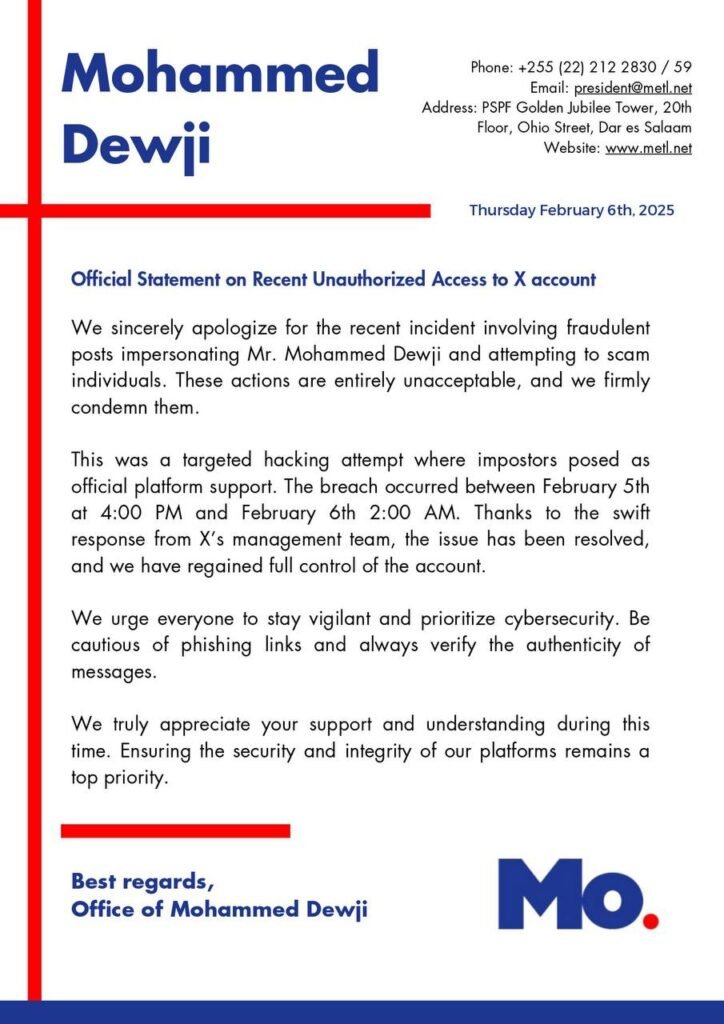
As the crypto industry matures, the balance between fostering innovation and ensuring robust consumer protection remains a delicate one. Incidents like the $TANZANIA scam serve as crucial lessons for both regulators and market participants. They highlight the urgent need for enhanced cybersecurity protocols, clearer regulatory frameworks, and better education for investors—particularly in markets where crypto adoption is growing at a rapid pace.
For more updates and in-depth analysis on this story and other developments in the crypto space, stay tuned to TawkCrypto.
